Five reasons people don't wear poppies
- Published
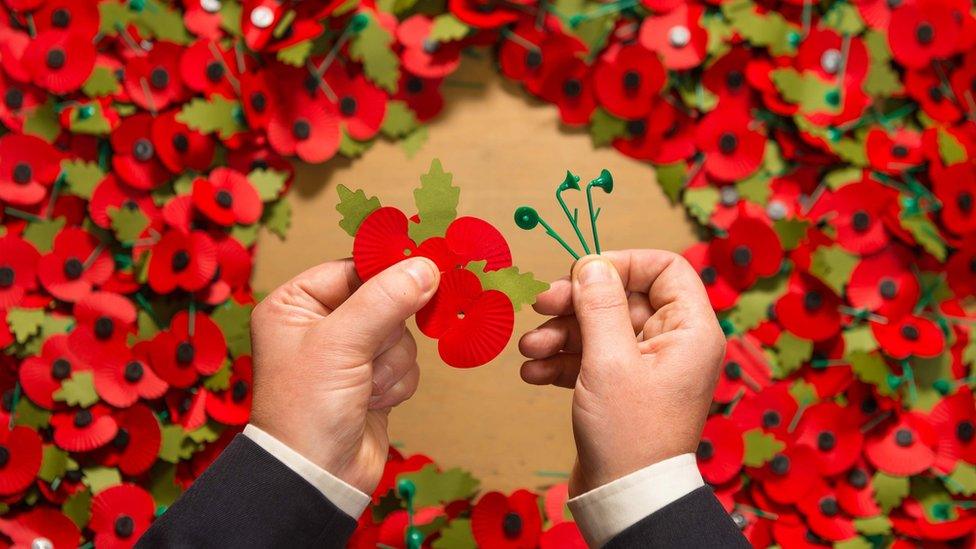
Each year millions of poppies are produced to commemorate members of the armed forces. A sizeable group of people choose not to wear them. What are their objections?
Since 1921, poppies have been worn on and ahead of Remembrance Day. Over 50 million are produced each year by the Poppy Factory in Richmond, south-west London, and Lady Haig's Poppy Factory in Edinburgh.
But while the symbol is widely displayed - and a near-ubiquitous sight on British television - there are many who have taken an active choice not to participate.
Here are some of the reasons people have given for not wearing them.
Because they don't wear any symbols at work
ITV News presenter Charlene White has faced considerable criticism - and even abuse - for her decision not to wear a poppy on air.
White, whose father and uncle served in the armed forces, says she donates to the Royal British Legion (RBL) and wears a poppy in her private life.
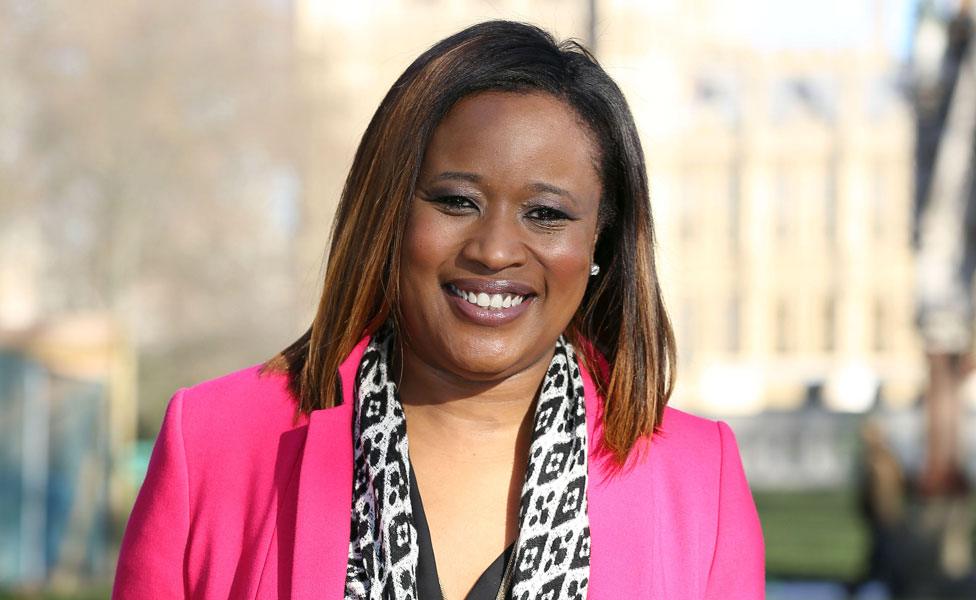
However, due to impartiality rules, she is unable to wear symbols of other charities - such as a World Aids Day red ribbon - on screen, and said in a 2014 statement, external: "I feel uncomfortable supporting just one charity above all others." She added that she supports colleagues who do wear a poppy while broadcasting.
Channel 4 newsreader Jon Snow also blogged, external in 2006 that, while he wears a poppy outside of work, he does "not believe in wearing anything which represents any kind of statement" on air.
In 2011 Fifa ruled that England, Scotland and Wales players could not wear poppies on their shirts because its regulations forbade the use of "political, religious or commercial messages". Following a public outcry, teams were permitted to wear poppies on black armbands.
They believe the poppy has been misappropriated
Harry Leslie Smith, a 92-year-old World War Two RAF veteran, has not worn a poppy since 2013 because he believes "the spirit of my generation has been hijacked" by latter-day politicians to "sell dubious wars" in Afghanistan and Iraq.
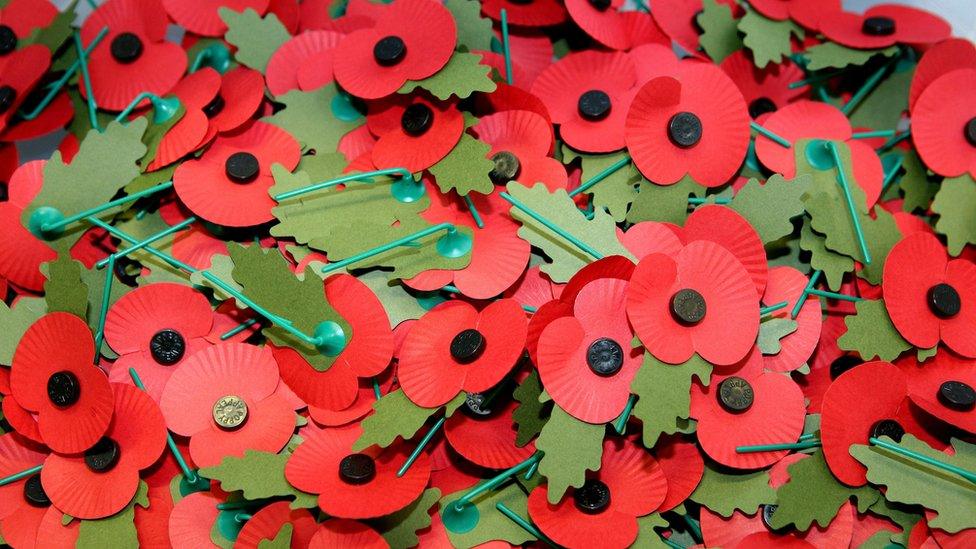
He says the Royal British Legion does much good work for ex-service personnel, but argues that if politicians "want war they must be prepared to pay for the consequences and not leave it to charity".
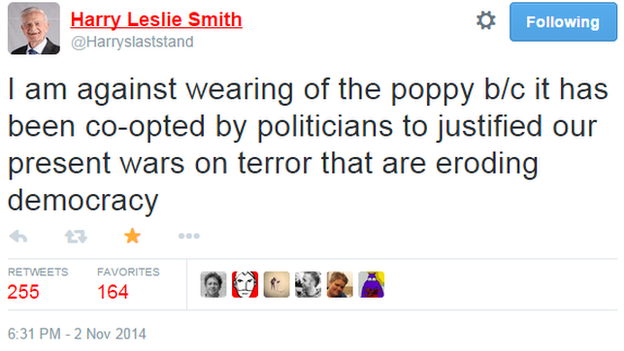
The Independent's Robert Fisk wrote, external that his father, who served in World War One, stopped wearing a poppy towards the end of his life because he believed its purpose of commemorating a "great waste" of lives had been lost.
People who had no idea what the trenches were like were wearing them for "social or work-related reasons" or to look patriotic, he believed. He also objected to the actions of Earl Haig, a senior WW1 officer and one of the RBL's founders.
They reject "poppy fascism"
Explaining why he did not wear one, Snow added that there was "a rather unpleasant breed of poppy fascism out there - 'he damned well must wear a poppy!'".
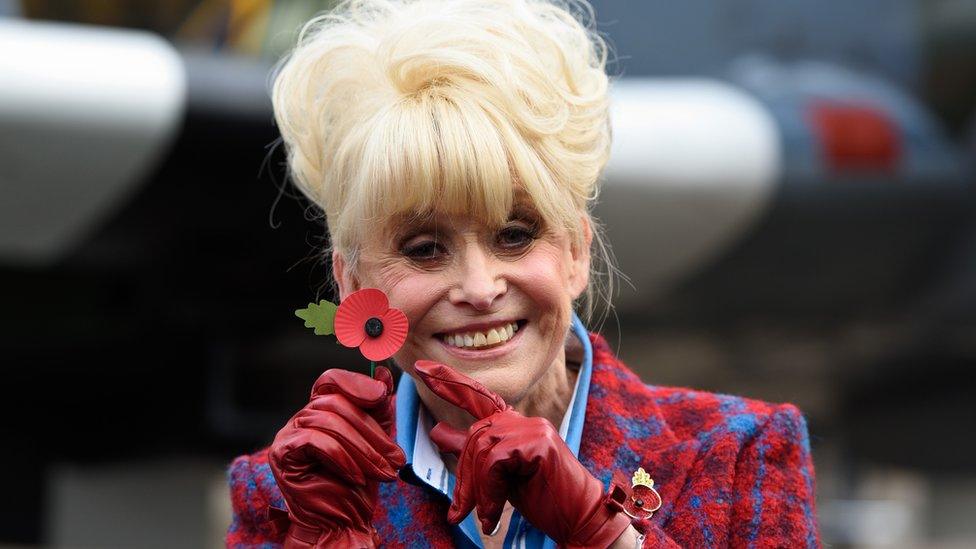
Barbara Windsor was criticised for her views on those who do not wear poppies
It's a phrase that has since caught on, even among people who are otherwise supportive of the Poppy Appeal. Newspapers from the Daily Telegraph, external to the Independent, external have used the term to describe the hounding of those who don't wear a poppy - a process that, it is alleged, leads the symbol to be displayed out of fear of public censure rather than out of conviction. The actress Barbara Windsor was widely criticised, external when she said anyone who didn't display the symbol could "sod off".
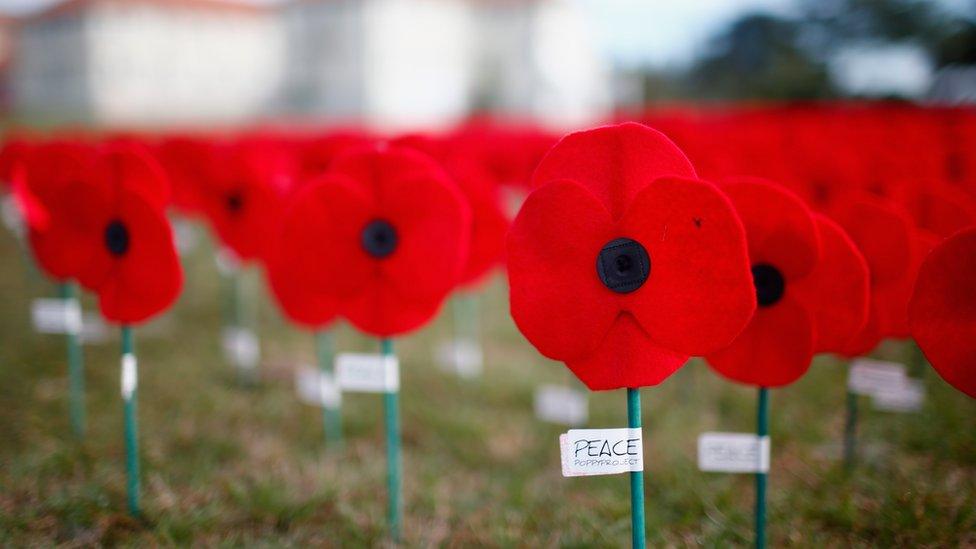
Writing in the Daily Mail, external, historian Dominic Sandbrook condemned the "poppy fascists" whose "culture of bullying" saw actress Sienna Miller vilified on social media when she appeared without a poppy on the Graham Norton Show. This behaviour contradicted the message of the poppy and did a disservice to the sacrifice of those who died in the name of democracy and freedom of expression, he added.
Others object to the length of time some people wear the poppy. BBC presenter Evan Davis tweeted, external in 2010 that he approved of the symbol but questioned "whether the long 18-day poppy season reduces impact".
A spokesperson for the Royal British Legion says the poppy "honours all those who have sacrificed their lives to protect the freedoms we enjoy today, and so the decision to wear it must be a matter of personal choice. If the poppy became compulsory it would lose its meaning and significance. We are thankful for every poppy worn, but we never insist upon it, to do so would be contrary to the spirit of Remembrance and all that the poppy stands for."
They are pacifists
The white poppy is produced by the Peace Pledge Union, an anti-war group founded in 1934.
The PPU's website says, external the red poppies have the effect of "reinforcing support and acceptance of the military". Elsewhere, it says many people, external are "concerned about the poppy's association with military power and the justification of war".
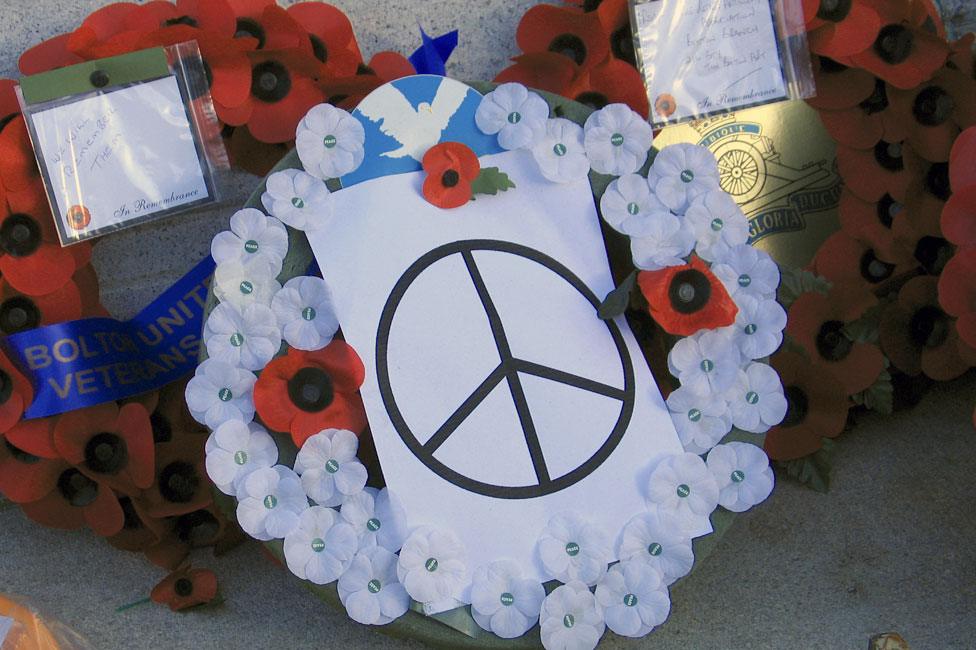
In 2014 some 99,000 white poppies were distributed by the PPU. The Stop the War Coalition also urges, external supporters to wear white poppies.
The RBL says it has "no objection, external" to the white poppy and sees "no conflict" in wearing it alongside the red poppy. A spokesperson says: "The red poppy is a universal symbol of remembrance and hope, including hope for a positive future and peaceful world."
Labour leader Jeremy Corbyn has previously worn both red and white poppies together while laying a wreath at a remembrance day event in his constituency, but has said, external he will only wear a red poppy this year at the Cenotaph.
They object to actions of the British armed forces
West Bromwich Albion midfielder James McClean has said he will not wear a poppy against Manchester United at Old Trafford this weekend. He also refused to wear the symbol while at his former clubs Wigan and Sunderland.
In West Brom's matchday programme, McClean said, external he would "wear it every day of the year" if it only represented those who died in WW1 and WW2.
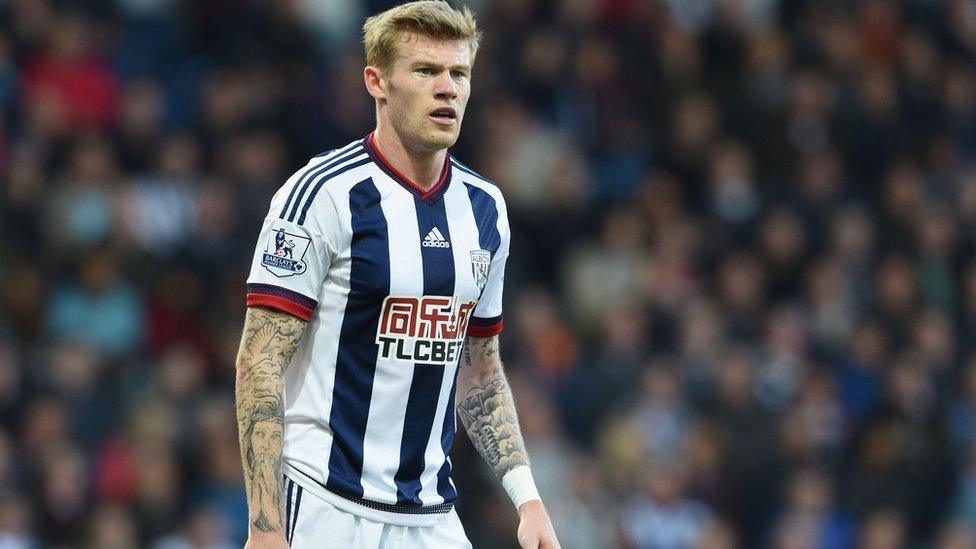
West Brom midfielder James McClean has said he will not wear a poppy
However, he said the poppy represented all the conflicts the UK had been involved in, and because "of the history where I come from in Derry, I cannot wear something that represents that". In 1972, 14 unarmed civilians died after members of the Parachute Regiment opened fire on a protest march through the city.
In 2010, a group of Celtic supporters unfurled banners objecting to the presence of poppies on the team's kit, citing British interventions in Afghanistan, Ireland and Iraq. The club apologised for the fans' behaviour.
Subscribe to the BBC News Magazine's email newsletter to get articles sent to your inbox.